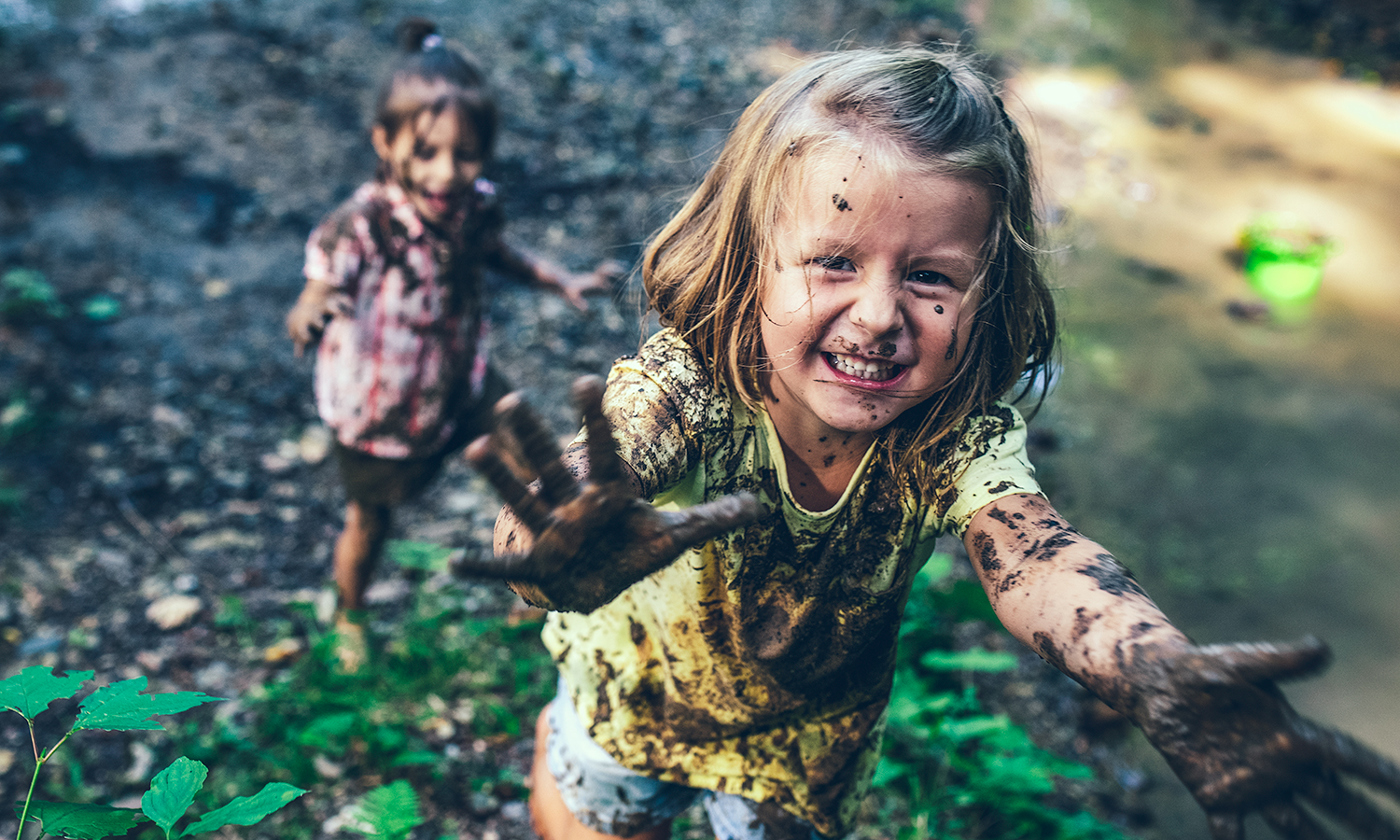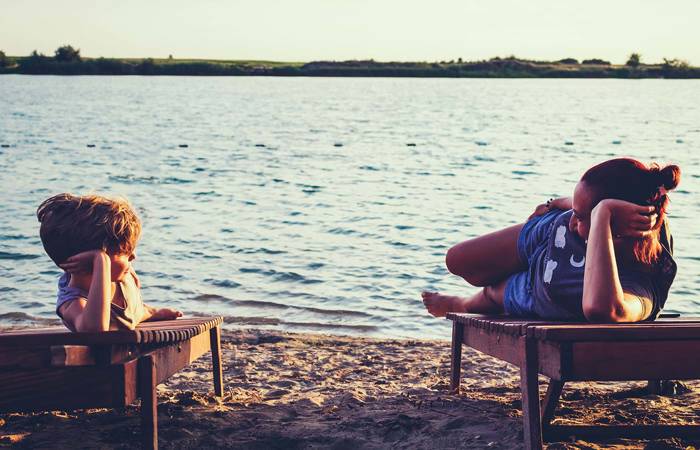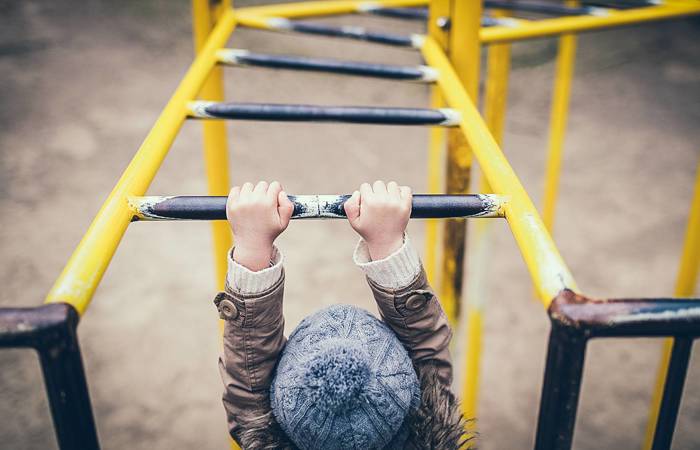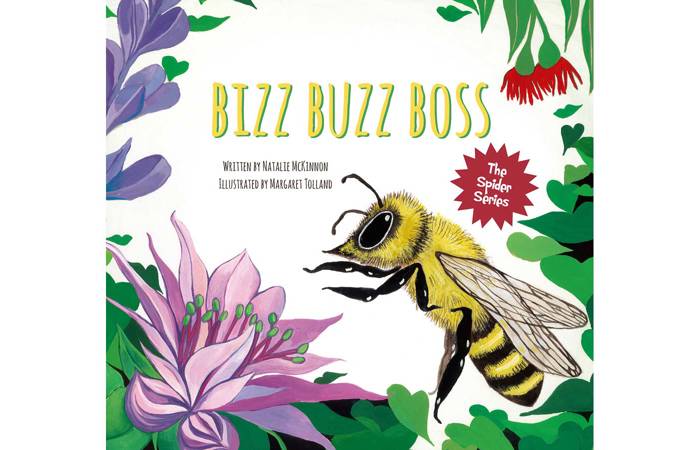Like what you see?
Sign up to receive more free parenting advice.
Thank you for subscribing to our newsletter!
Early Learning

Credit: iStock.com/vm
While parents are desperate to get their children away from screens, experts are encouraging parents to see past the playground, with its queue by the swings and fights for whose turn it is to slide. Instead, they are promoting the lifelong benefits of playing in nature.
“There is a global movement looking to have more outdoor nature play, particularly in the early years,” says Associate Professor Janet Dyment from the School of Education at the University of Tasmania.
“There are a lot of people who worry about children not having access to nature spaces.”
She explains that children playing in the playground, instead of in nature, miss out on creative, imaginative play that is open-ended and unstructured.
“Nature play is when children are provided with the opportunity to engage in unstructured play activities in outdoor settings where natural elements feature, such as logs, rocks and water, as opposed to conventional manufactured play equipment,” says Dr Dyment.
It is when children create their own play using natural features.
Dr Dyment says that there are potential barriers around children being allowed to engage in nature play.
“A lot of the barriers are around this fear that children might get hurt more in nature play, for example from bees or falling from the log or rocks or tripping,” she says.
“Increasingly, the argument is being made that the risks of not allowing nature play are actually greater than the risks from the potential minor injuries from nature play.
“Another barrier is this culture of helicopter parenting, where a lot of parents just don’t want their children to have free play in the bush.
“To add to all of that, parents are also busier. So, children are being enrolled in more structured activities like ballet, or swimming, or piano.”
As a result, that opportunity for unstructured, free play in nature can be quite compromised.
Dr Dyment adds that for some children don’t know how to play in nature, and need time and space to learn.
“It’s about getting your children to these spaces, getting them in the right clothes for this type of play, spending a lot of time in these places and ultimately, trusting your children to play in nature,” she says.
The value of nature play
“There is a mountain of international research that points to the benefits of nature play for young children,” says Dr Dyment.
“The first being the physical benefits.
“Children who engage in nature play, they move in different ways to other types of play.
“They move in ways that promote their physical wellness.
“They are lifting rocks, they are climbing over things, they are running through their imaginary nature spaces.”
In addition, research from 2018 found that children who lived in greener areas, were less likely to be asthmatic.
“Then there is socially,” continues Dr Dyment.
“Young children are able to learn a number of social skills in nature play settings.
“Often on manufactured play equipment, there is a hierarchical social structure.
“The strong kids or the popular kids get the privilege to be on the swing or go on the slide, while in nature play it is socially level.”
It’s about getting your children to these spaces, getting them in the right clothes for this type of play, spending a lot of time in these places and ultimately, trusting your children to play in nature.Associate Professor Janet Dyment
Stay up to date with the latest news and articles from First Five Years
Thank you for subscribing to our newsletter!
In 2017, a Canadian study assessed the effects on increasing opportunities for nature and risky play in the outdoor play environment of two childcare centres.
Researchers found that in the centre with more natural elements, there was a significant positive effect on the children’s play, social behaviours and mental health, particularly in independent play and prosocial behaviours.
“Early Childhood Educators observed improved socialisation, problem-solving, focus, self-regulation, creativity and self-confidence, and reduced stress, boredom and injury,” says the study.
“Outdoor play spaces are important for promoting children's wellbeing and development.”
Another area of benefit is spiritually.
“A lot of nature play involves children planting and being caretakers for these outdoor play spaces,” says Dr Dyment.
“They learn about the life cycle and that things grow and that things die.”
Finally, the emotional and mental wellbeing benefits of nature play can be long lasting.
“Young children are provided with opportunities that are very conducive to being peaceful in their play and learning to develop resilience,” says Dr Dyment.
Researchers from a 2019 European study found that adults who had low levels of natural outdoor environments in their childhood had significantly worse mental health than those who were exposed to nature.
The authors note that, “the availability of natural outdoor environments and the time that children spend in them have been associated with increased self-esteem, quality of life, respiratory health, physical activity, and lower body mass index.
“Our study showed that low levels of childhood natural outdoor environments exposure are associated with worse mental health in adulthood, which supports the call on policymakers to improve availability of natural outdoor environments for children.”
In another study from 2019, the Danish authors found that children who grew up with low levels of green space had up to a 55 percent higher risk of developing a psychiatric disorder later in life.
How to get our children playing in nature more?
“There are growing movements in Australia and internationally to provide more young children with natural play,” says Dr Dyment.
“Government policy needs to endorse, through the curriculum and educational documents, the value of outdoor play.
“Early childhood educators need to be learning about the power and potential of outdoor play through their training.
“As for childcare centres and schools, they really need to ensure children have lots and lots of time playing outside in natural environments.
“As for families, it is about encouraging and planning family time in more natural outdoor spaces.
“It’s about getting your child off the device and hitting that sweet spot of boredom where a child will eventually find something to do.”
How to get more outdoor play in your child’s life.
- Get them to help with outdoor chores like weeding, sweeping and watering the garden.
- Go for a bike ride or walk on bike and walking trails through parks and make it a regular activity.
- Organise play dates at the local park instead of in your home and let them run wild.
- Make up a scavenger hunt for your next park visit and get your children to find as many on the list.
- Take old kitchen pots and tools to the beach to make mud pies, or even in your own garden if you have one.
- Take morning tea or lunch outside, either in your garden or at the local park, and have a picnic.
- Play hide and seek at the park, this will not only get them outdoors, but will increase their confidence in exploring new environments with a little independence.
- Show them how to climb a tree or balance on a fallen tree log.
- After it rains, get the gumboots out and go muddy puddle jumping.
- Dust off the camping gear and go camping.







